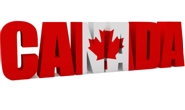Canada

September 14, 2020
U.S. Pulls Aluminum Tariffs Prior to Canadian Retaliation
Written by Sandy Williams
The U.S. has reversed its position on imposing tariffs on Canadian aluminum imports. The U.S Trade Representative said in a statement on Sept. 15, “After consultations with the Canadian government, the United States has determined that trade in non-alloyed, unwrought aluminum is likely to normalize in the last four months of 2020, with imports declining sharply from the surges experienced earlier in the year.”
A 10 percent tariff was imposed by President Trump in August, but average monthly imports are now expected to decline 50 percent from the January through July monthly average.
Shipments are expected to be no greater than the following volumes for the remainder of the year:
The USTR reserved the right to impose 10 percent tariffs retroactively on any month that exceeds 105 percent of the expected volume. Any increase in volume is expected to be reduced by the corresponding amount in the following month. If imports should exceed 105 percent in any month, the U.S. may also re-impose the tariff going forward.
Canada was expected to reveal on Tuesday $3.6 billion in retaliatory countermeasures to the aluminum tariffs. Potential U.S. export targets included products such as aluminum beverage cans, tinfoil, appliances, staples and recreational items like bicycles and golf clubs.
Governors from New England urged the administration to drop the tariffs in a Sept. 8 letter, calling them “unnecessary and inappropriate.”
Vermont Gov. Phil Scott, New Hampshire’s Chris Sununu and Maine’s Janet Mills said in their letter, “New England and Canada build things together. About half of all trade with Canada takes place between our related companies.
“We strongly believe that this stance regarding Canadian aluminum will only hurt American manufacturers. The tariffs will make products from an F-35 jet to a washing machine to a can of beer more expensive, thus making the value chain weaker and negatively impacting our economy.”







